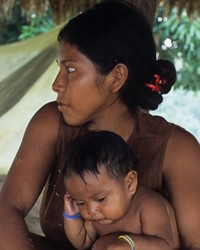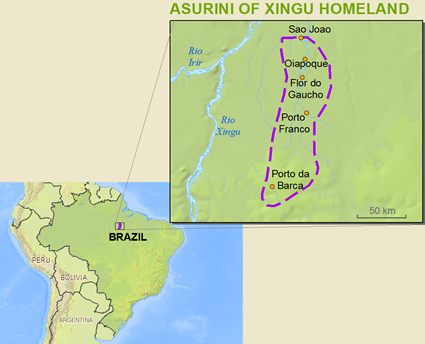Caló ancestors fled the Iberian Peninsula during the 16th century Inquisition. The people immigrated to Brazil between the 16th and 19th centuries. Many still live in suburb tents; some own businesses in cities. People work in shops and hotels, and drive taxis. Caló men often buy products on the border to sell in cities. Woman are fortunetellers, card and palm readers. Since Chibi speakers are not technically "indigenous," they are not well-accepted in Brazil. This large people group clings to the margins of mainstream society, sometimes hiding their identity.
Chibi-speaking men wear loose-fitting pants, colorful embroidered shirts, earrings and gold jewelry; some also boast gold teeth. Ladies wear skirts and blouses. Older women use doily head-coverings and wear as much jewelry as they can afford. All Caló people love to dance and sing; they rarely refuse opportunities to perform in public.
Religious practices in Caló culture mix animistic traditions and Christian rituals. A fear of spirits permeates daily life. Their religious heritage is a world religion worshipping a pantheon of gods, so these pragmatic people do whatever improves their circumstances. This includes faithful church attendance and rigorous attention to rituals, alongside trusting fortunetellers' advice.
Scripture Prayers for the Asurini do Xingu in Brazil.
| Profile Source: Anonymous |











